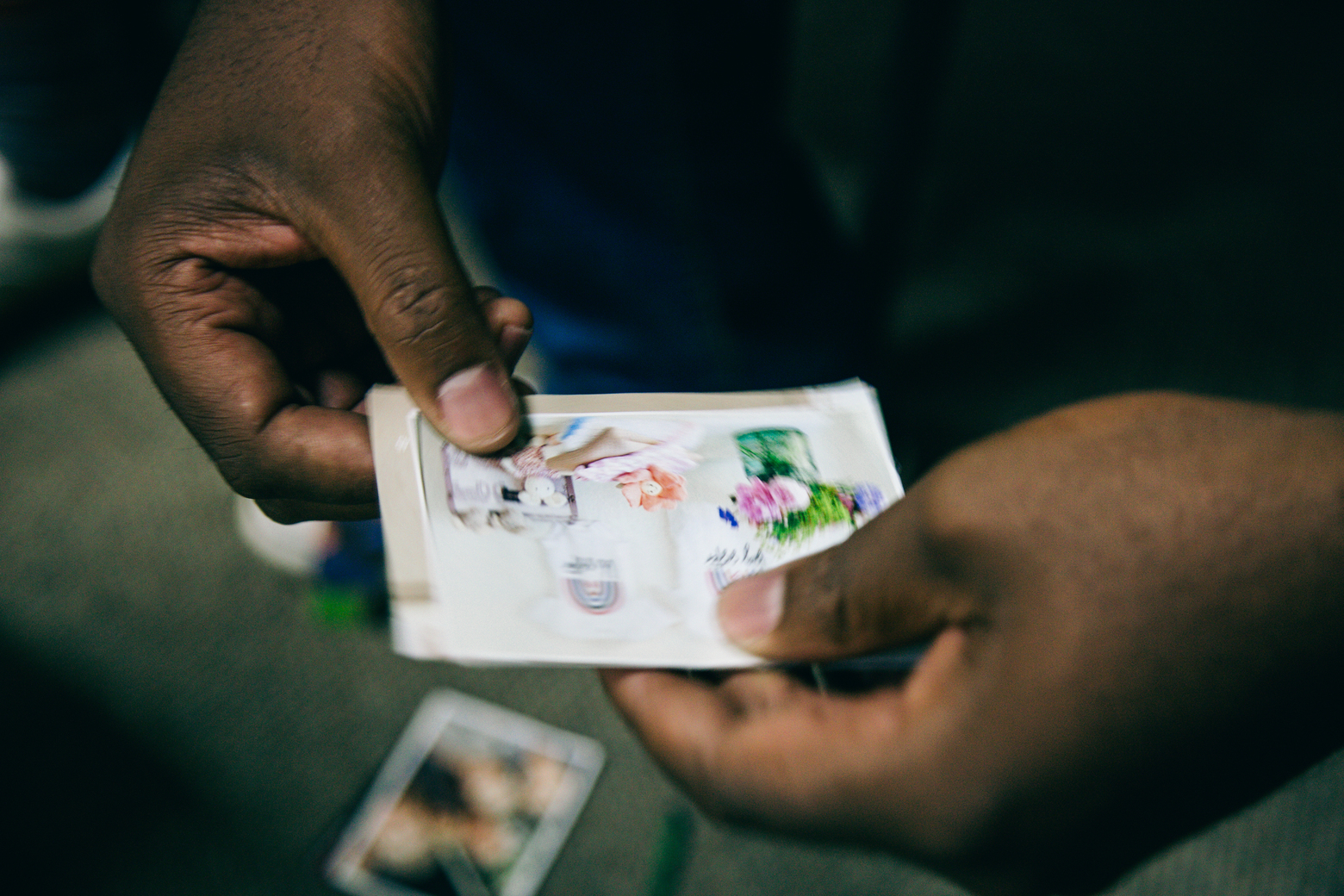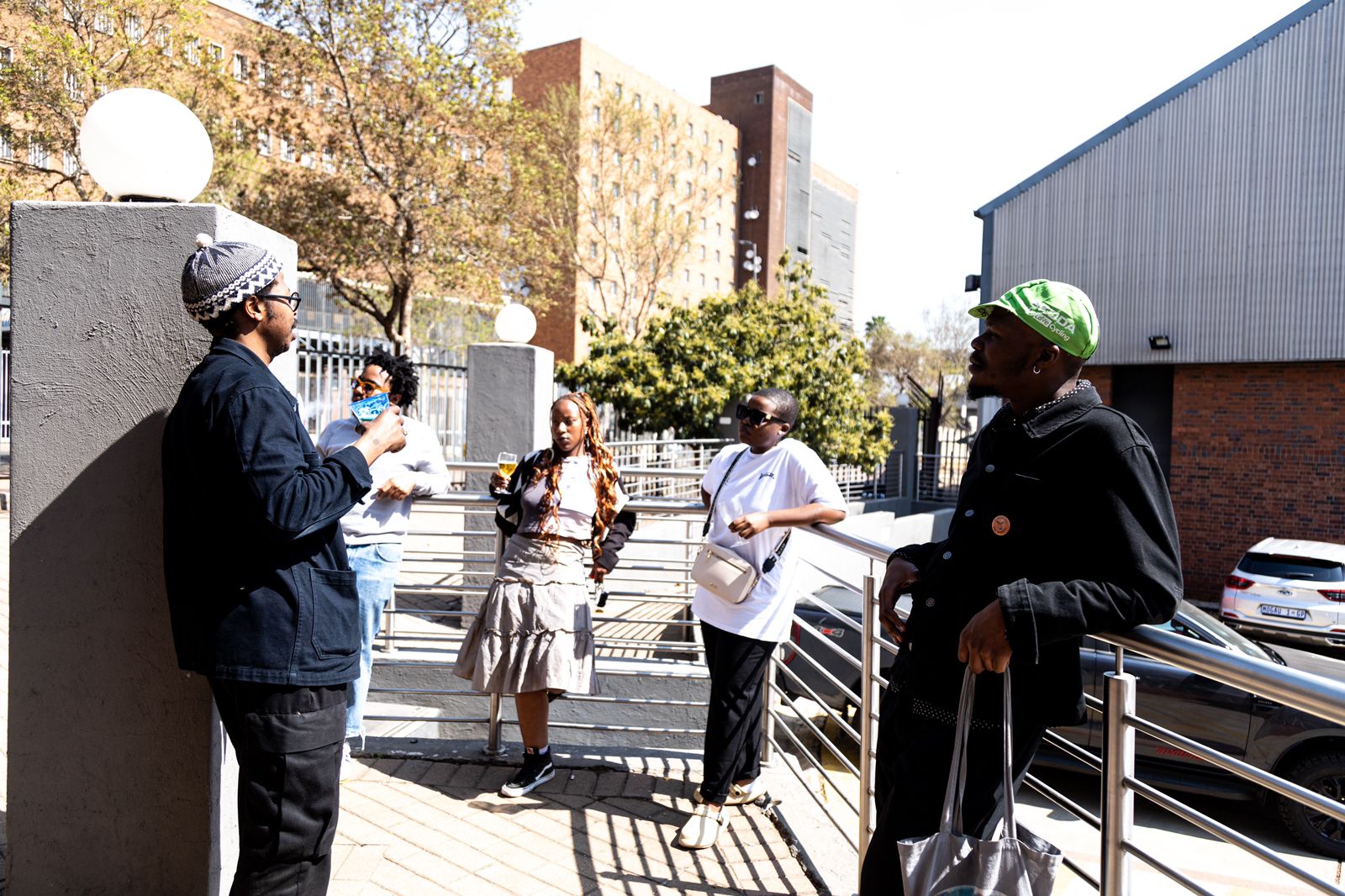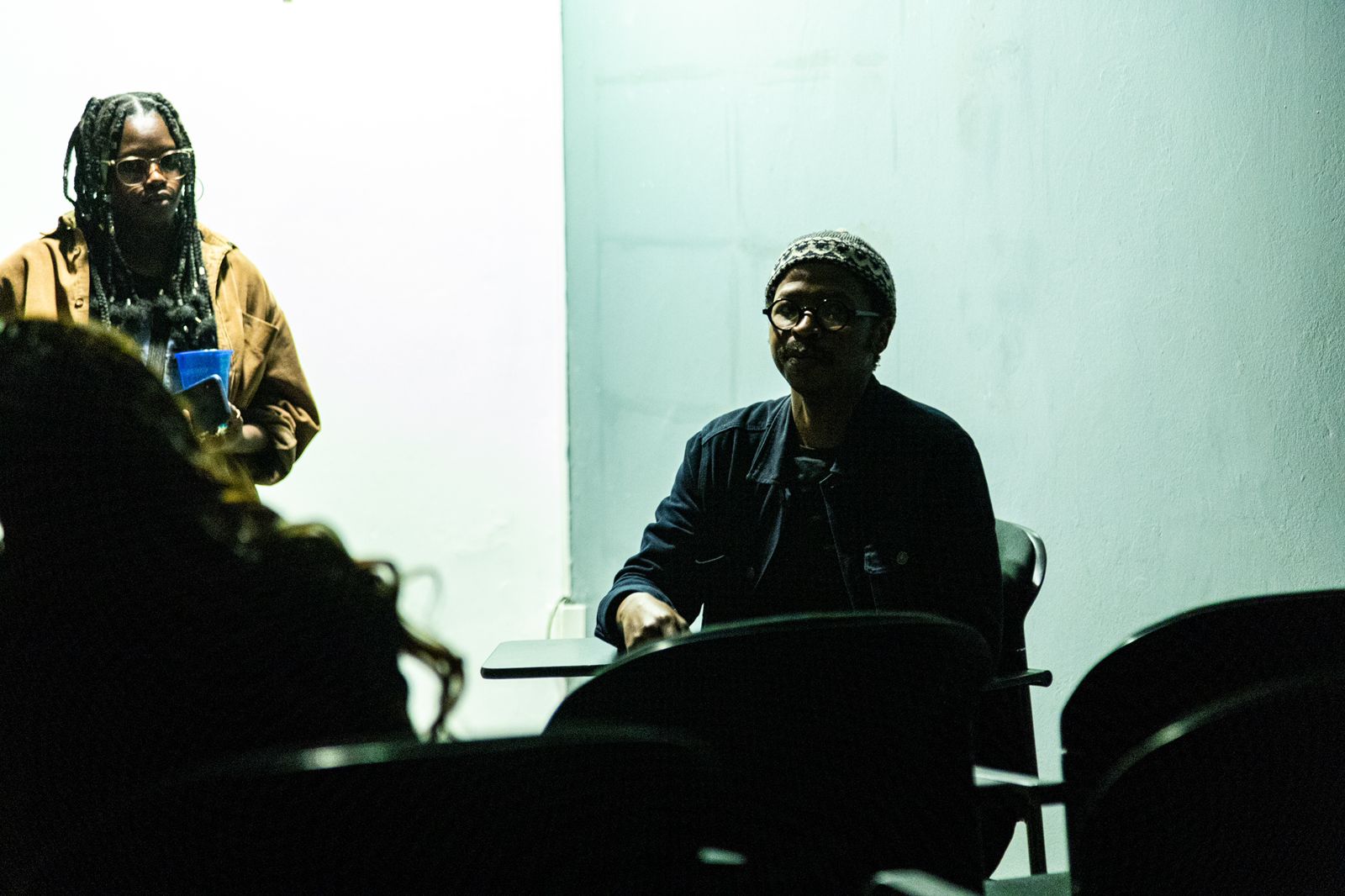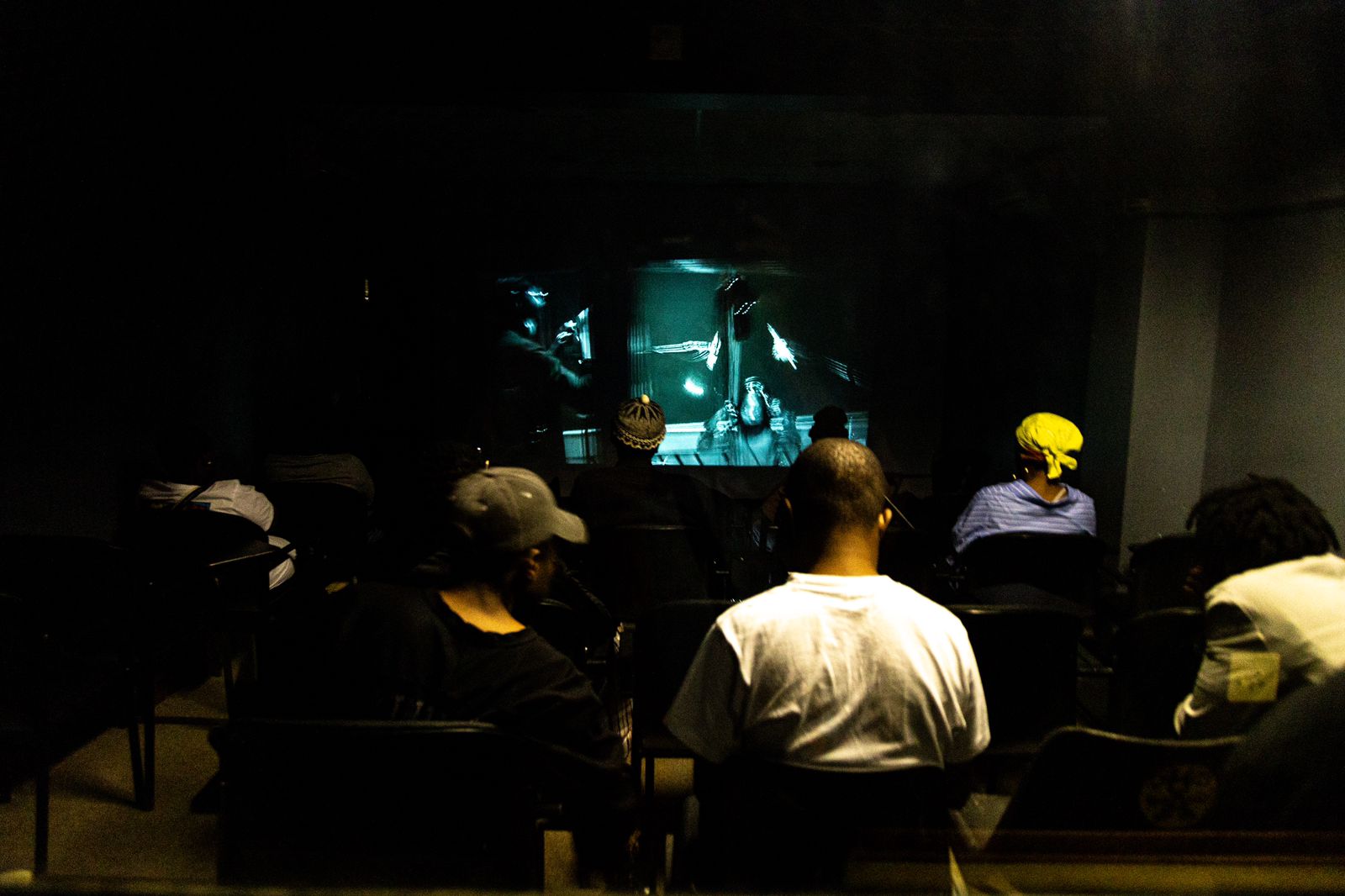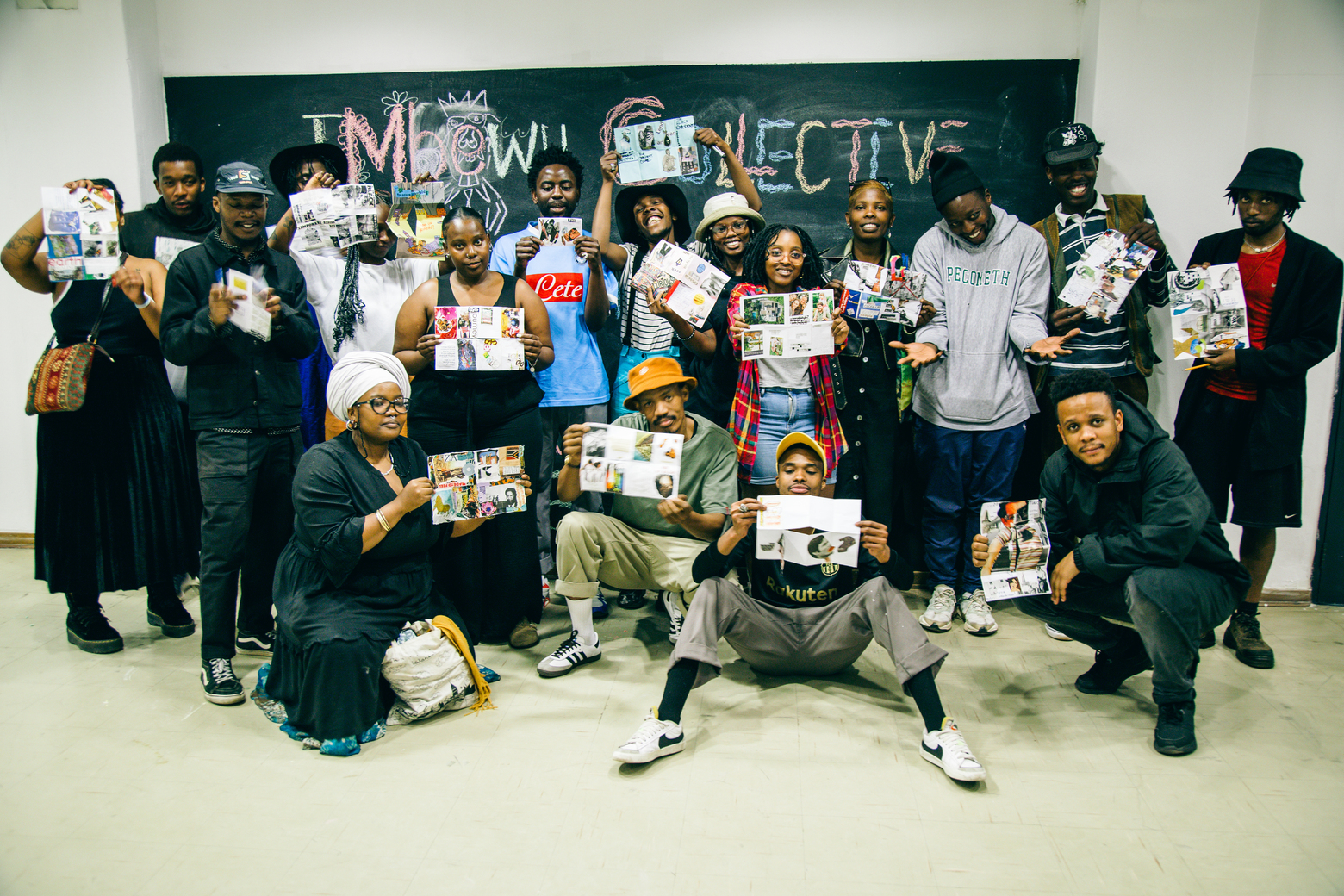From September 2nd to 4th, Imbewu Collective hosted a Jazz and Zine Workshop at Umhlabathi Collective in Newtown, Johannesburg. Drawing from Black Consciousness Centred by Tumi Mogorosi, the three-day event was a gathering of minds and bodies deliberating together on the influence of Black Consciousness on artistic practice. It provided a platform for critical dialogue and collaboration among artists, thinkers, and cultural practitioners, examining the intersection of culture, politics, and identity in Black cultural production.
On the first day there was a book reading by Mogorosi and a screening of Group Theory, on the second day was the zine workshop and by the time I eventually arrived on the third day, the discussion was on “pleasure” in relation to domination, from Louis Armstrong’s smile meant to appease white audiences to revolutionary poets advocating for art that “kills.” A recurring theme in the workshop was the critical examination of artistic forms, particularly jazz, not merely as a genre but as a cultural tool central to the struggle for Black liberation.
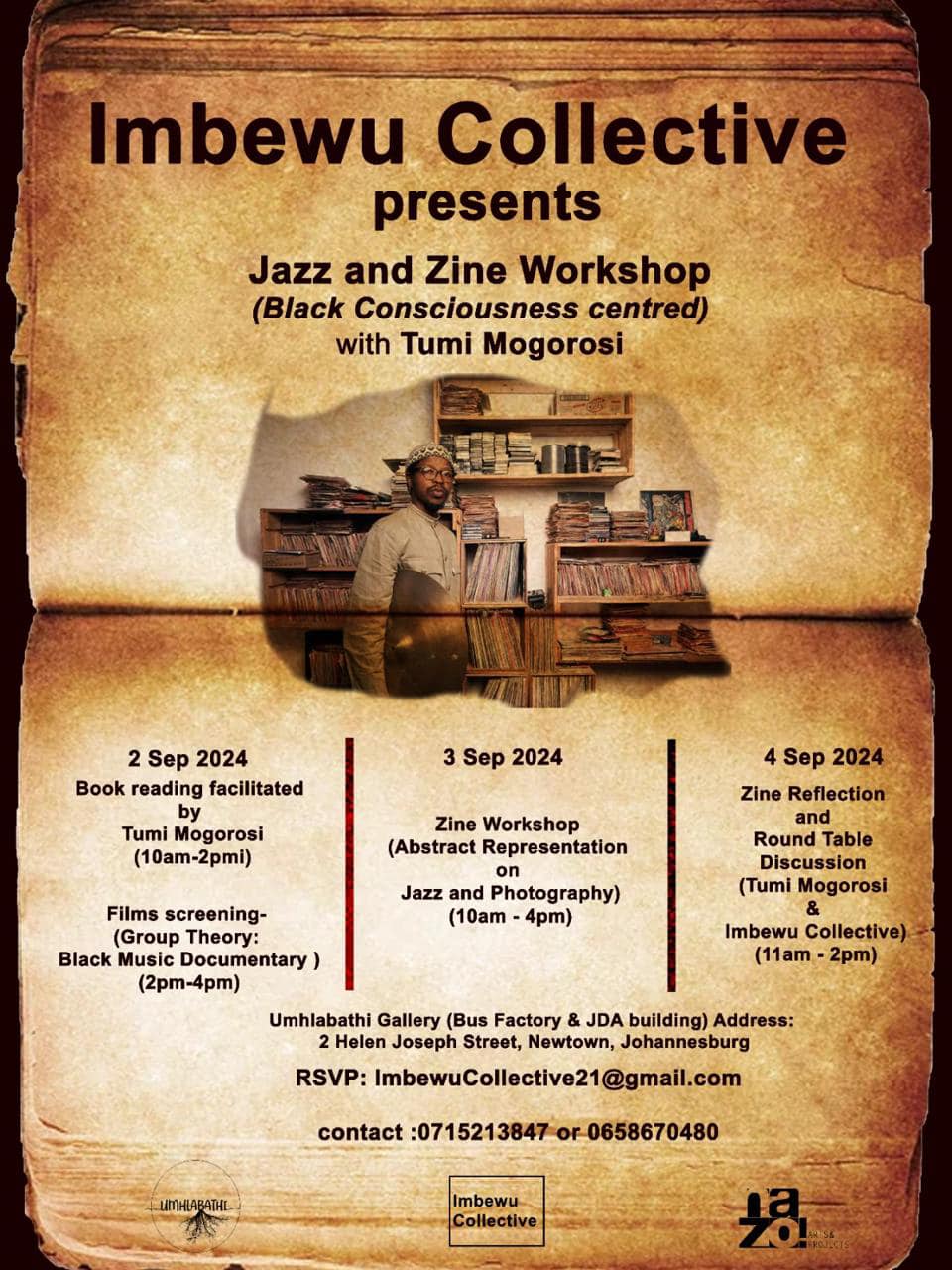
The workshop seemed to be grounded in presentations framing Black cultural work as both a political act and a product of the political economy. Chief among the advocates of this notion was the ever cerebral drummer, Mogorosi. With him, participants worked through modes of understanding cultural production through the lens of power dynamics, examining how Black creativity is deeply entangled with economic structures and systems of social subjugation, with particular focus on the means of production and property relations.
Drawing on Saidiya Hartman’s Scenes of Subjection (1997) Mogorosi showed how Black enjoyment functions as both a means of survival and resistance in an anti-Black world, while being inextricably linked to the historical context of forced displacement and the commodification of Black bodies for the pleasure of others. The contrast between being a “jazz musician,” which often commodifies Black art, and producing “Black music,” seen as a liberatory project, is one articulation of the complexities of Black existence.
But beyond jazz, the workshop showed Black Consciousness as a vital framework for contemporary art, emphasizing its role in examining art’s function beyond aesthetics and within the broader context of Black liberation. It amplified the need for culturally and politically conscious work that confronts oppression and embraces the transformative potential of Black art. During the Q&A, I felt compelled to ask about the role of zines in all this. While I had missed much, their presence on the posters was a key reason I chose to attend.
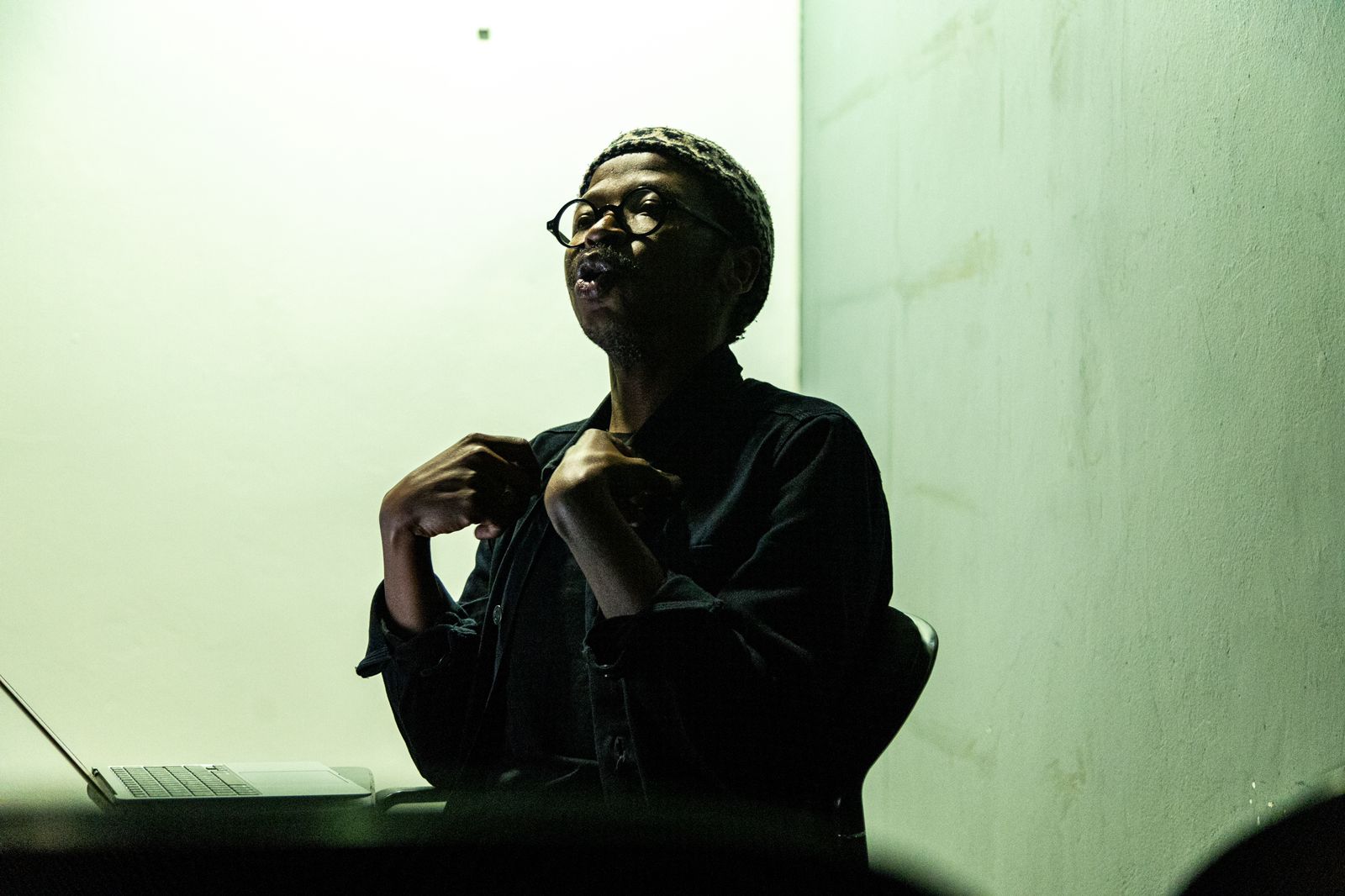
Zines are self-published, low-cost booklets that often amplify marginalized voices and radical ideas. Originating from 1930s sci-fi fanzines and early Black writers’ magazines, they became prominent in punk and feminist movements. Though their popularity waned in the early 2000s, zines have recently resurfaced through digital platforms. Their DIY nature, accessibility, and activism, enables them to challenge dominant narratives and build niche communities, so it makes perfect sense for Imbewu now to embrace them as a catalyst for change.
In a Bubblegum Club article from seven years ago, Marcia Elizabeth explored the cultural significance of zines. Elizabeth highlighted the resurgence of zines amidst today’s digital and nostalgic trends, showcasing South African zines like Still Not Joshy Pascoe and This is What Makes Us Girls. These examples adequately show self-publishing’s role in personal and cultural expression, but the Medu Art Ensemble‘s influential use of visual arts, theater, and zines in the liberation struggle is often overlooked in post-apartheid reflections.
The workshop concluded with a reaffirmation of the relevance of Black Consciousness and emphasized art’s crucial role in Black liberation. It was also a reminder of the need for collaborative spaces where Black artists can critically engage with socio-political issues. Over three days, the workshop adamantly promoted using art to challenge oppressive narratives. As participants returned to their respective fields, the call to action was louder than ever to sustain this dialogue and create intellectually rigorous and artistically sound Black work.

